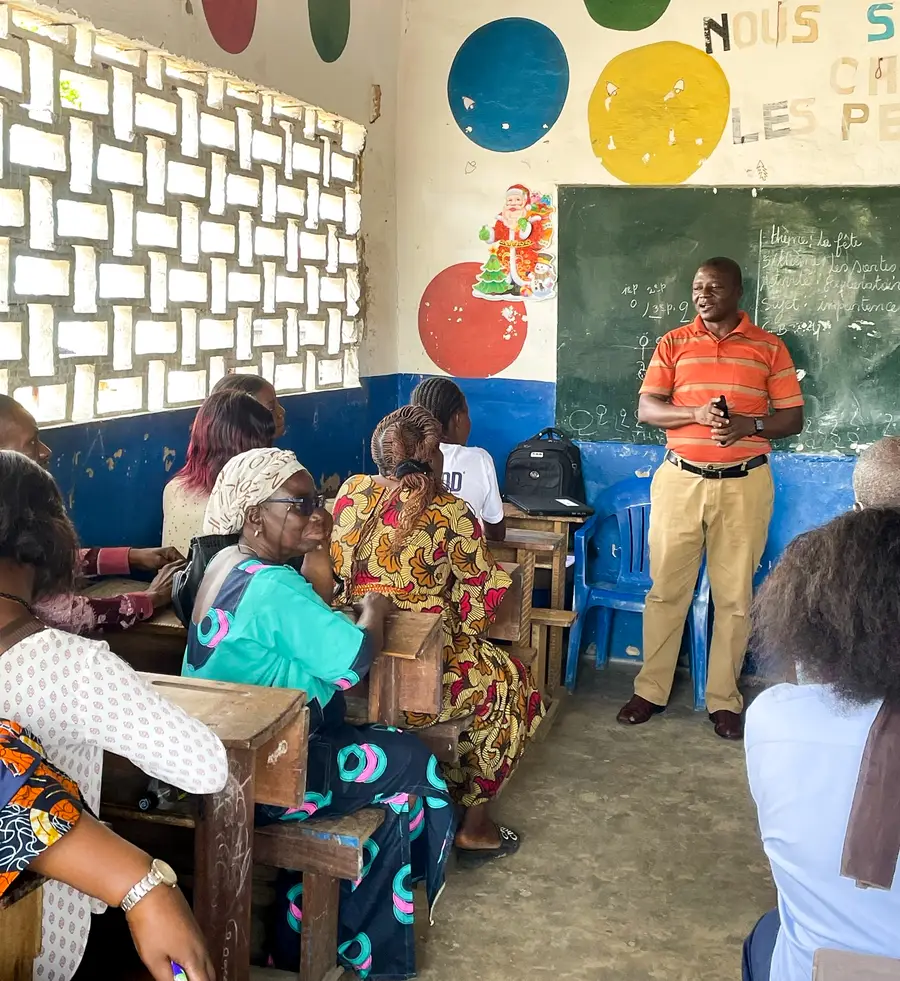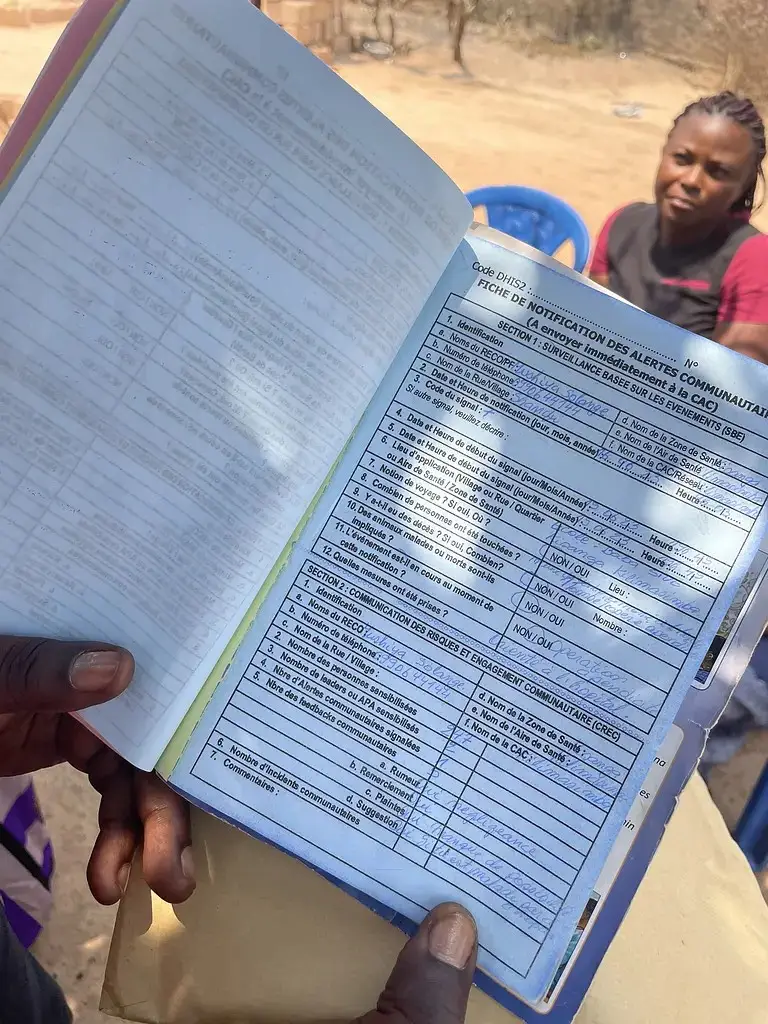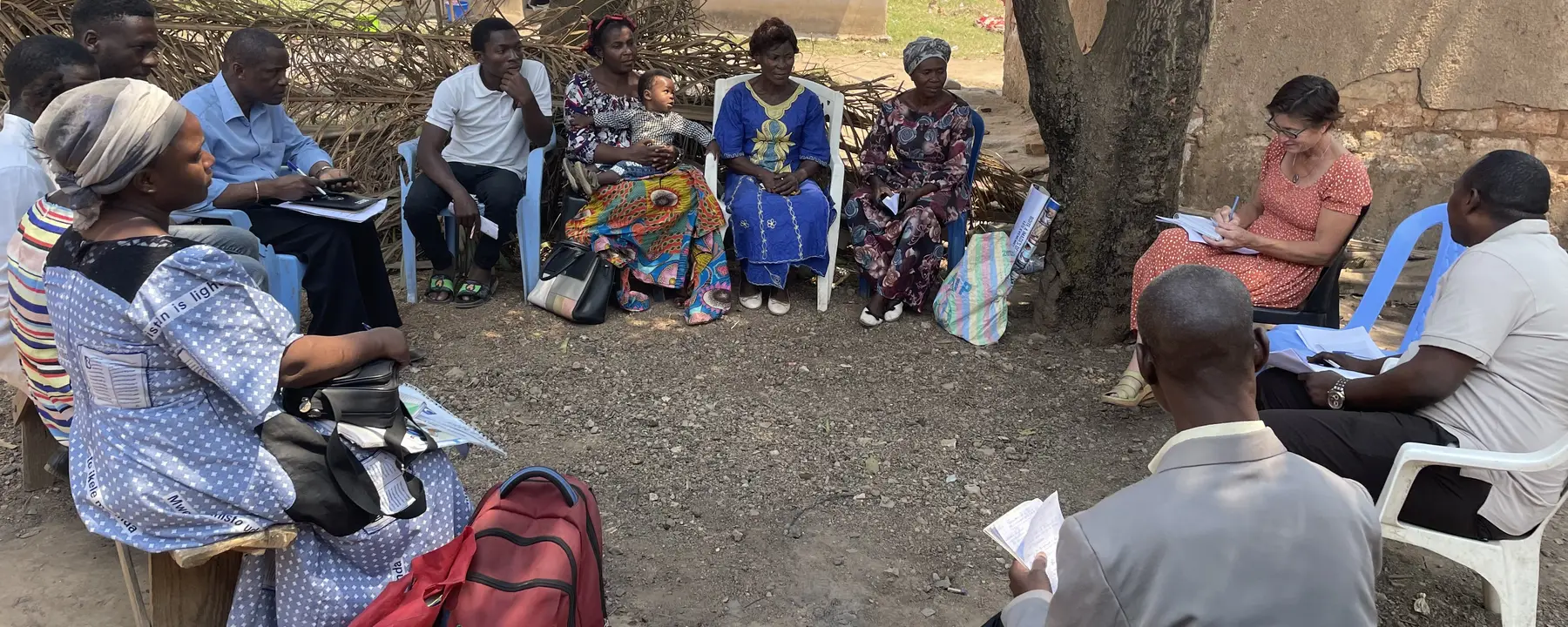Enhancing risk communication and community engagement efforts to support COVID-19 response in the Democratic Republic of the Congo before the next outbreak
Objective
To strengthen the capacity of the health system and the community to conduct risk communication and community engagement (RCCE) activities in response to COVID-19 and other health emergencies.
Approach
Using a cascade model, we trained and supervised community animation cells (CAC) and community leaders and volunteers (rélais communautaires, RECO). We then collected data to measure the reach, quality, and impact of RCCE activities.
Impact
We established and trained 1,492 CACs and 8,067 RECOs in 10 health zones in Kinshasa and Haut Katanga provinces and supported CACs to develop and implement community action plans. Trained RECOs reached over 2.2 million people in Kinshasa and over 100,000 in Haut Katanga with health information and feedback.
Case Study: Community-Led Response to COVID-19 in DRC
Democratic Republic of the Congo (DRC) has faced multiple health emergencies in recent years, including Ebola outbreaks, measles epidemics, and the COVID-19 pandemic. Risk communication and community engagement (RCCE) is an essential component of community-based emergency response, as it provides health information that is credible, trusted, relevant, timely, accessible, and actionable. RCCE also empowers communities to develop tailored solutions to public health threats and allows for bi-directional information exchange between the population and the health authorities.
In 2020, RTI was selected as an implementing partner for the CDC’s 5-year Enhancing Global Health Security: Expanding Efforts and Strategies to Protect and Improve Public Health in the DRC project. In this role, we collaborated and coordinated with the DRC’s COVID-19 RCCE commission (CREC) and the National Programme for Communication and Health Promotion (PNCPS) to strengthen the RCCE system in Kinshasa and Haut Katanga provinces.

Training of Community Animation Cell (CAC) members in Mont Ngafula 1 health zone, Kinshasa province, DRC, December 2022.
The project adopted a collaborative approach, involving stakeholders at all levels of the health system and the community to align RCCE activities with national strategy and guidelines. We worked within health zones to assess the current system of RCCE and supported communities to revitalize or establish community animation cells (CAC): groups comprised of elected leaders and community volunteers (relais communautaires, RECO) that oversee community outreach efforts.
We selected five pilot health zones in each province in collaboration with the DRC Ministry of Health and conducted a rapid assessment of the existing CACs and the RCCE health system.
Based on the assessment, we implemented the following steps to help strengthen this system:
- Trained CAC members in foundational community health, COVID-19 prevention and vaccination, and how to report rumors and misinformation through formal channels
- Provided data collection tools and education materials
- Supported CACs to develop and implement community action plans that provide a road map to conduct tailored activities in their communities
We conducted joint site visits with CDC and provincial Ministry of Health authorities three and six months after community action plans were implemented to assess reach and reporting activities and to identify lessons learned.

Photo of a community events/rumors notification form, Haut Katanga province, September 2023.
Strengthening RCCE Systems in the DRC
The project demonstrated the potential of RCCE as a strategy to engage and empower communities to address public health threats. It established a data collection system to facilitate bi-directional information exchange between the population and health authorities, which will improve future response to health events and misinformation in communities highly vulnerable to health emergencies. We recommend the following actions to improve and sustain the RCCE system in the DRC:
- Mobilize resources to produce visibility materials (t-shirts, badges, vests) and supply communication credits and transportation for RECO.
- Harmonize community-level data collection tools to improve quality and completeness and ensure resources for reproduction.
- Organize advocacy meetings with local authorities to enhance their involvement and support for community outreach activities.
- Conduct joint formative site visits and data analysis meetings to monitor and evaluate RCCE activities.
- Strengthen the capabilities of community actors in the management of rumors and misinformation.
Providing accurate and understandable health information during emergencies is a critical part of addressing public health threats. This project highlights the importance of local trusted community members in shaping responses to these threats and ensuring the safety of the whole community.
- Centers for Disease Control and Prevention (CDC)


